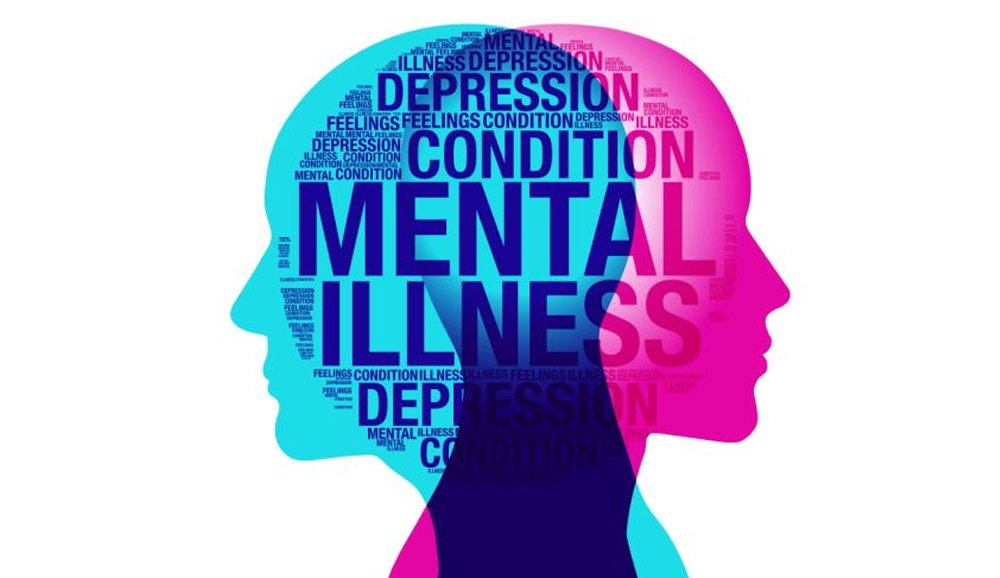Mental illness refers to problems that impair a person’s emotional, mental, and social well-being. These conditions can have a significant impact on daily life, interrupting relationships, work, and overall activity. There are over 200 recognized types of mental disorders, each with unique symptoms and experiences. Some common types are:
Depression: Characterized by persistent sadness, frustration, and loss of interest in activities once enjoyed.
Anxiety: Physical symptoms such as extreme anxiety, nervousness, rapid heartbeat and sweating were observed.
Bipolar Disorder: Characterized by severe mood disorders, ranging from manic highs to depressive lows.
Schizophrenia: A severe mental illness that can cause delusions, delusions and delusions.
Eating disorders: Unhealthy eating habits and distorted body image can lead to conditions like anorexia and bulimia nervosa.
Post-Traumatic Stress Disorder (PTSD): Occurs after experiencing or witnessing a traumatic event. Symptoms include flashbacks, nightmares, and avoidant behavior.
Causes of Mental Illness:
The exact cause of mental illness is often complex and can be a combination of factors. Here’s a breakdown of some key contributors:
Biology: Brain chemistry, genetics, and pre-existing neurological disorders all play a role.
Psychological factors: Childhood trauma, neglect, abuse, or stressful life events can exacerbate vulnerability.
Social factors: Poverty, social isolation, lack of support systems and discrimination can lead to various mental illnesses.
Substance Abuse: Drug and alcohol use can trigger or worsen mental illness.
While these factors can increase the risk of mental illness, it is important to remember that mental illness can affect anyone regardless of background or circumstance.
While these factors can increase the risk of developing a mental health disorder, it’s important to remember that mental illness can affect anyone regardless of background or circumstance.
Recognizing the Signs and Symptoms of Mental illness
Mental illness can manifest differently from person to person. However, some common signs and symptoms can be seen e.g.
Mood changes: Persistent sadness, anxiety, anger, rage, or apathy.
Behavioral changes: Withdrawal from social activities, changes in sleep or eating habits, substance abuse, suicidal thoughts or actions.
Cognitive changes: Difficulty concentrating, forgetfulness, confusion, or erratic thinking.
Physical changes: fatigue, headache, body aches, or digestive problems
If you experience any of these symptoms for a long time, it is important to seek professional help. Early diagnosis and intervention can dramatically improve outcome and overall quality of life..
Mental Health Conditions in Children and Adolescents :
Mental illness can affect people of all ages, including children and adolescents. Here are some specific signs to look out for in young individuals
Changes in school performance: Difficulty concentrating, dropping grades, or dropping out of school.
Social isolation: separation from friends and family.
Conduct problems: Increased levels of aggression, anger, or disruptive behavior.
Mood changes: Persistent sadness, anger, or anxiety.
Physical complaints: Frequent headache, abdominal pain, or difficulty falling asleep.
If you think your child or teen may be struggling with mental health issues, it’s important to talk to a pediatrician or psychiatrist. Early involvement of young people can be particularly important to prevent further complications.
Importance of Seeking Professional Help :
If you are experiencing symptoms of mental illness, please do not hesitate to seek professional help. A mental health professional, such as a psychiatrist, psychologist, or licensed therapist can perform a comprehensive assessment, diagnose a specific condition, and create an individualized treatment plan Optional treatment is usually a combination of psychotherapy (talk therapy) and medication, depending on the severity of the condition.
Benefits of Getting Help
There are many benefits to seeking professional help with mental health:
Improved symptoms: Treatment can effectively manage symptoms, leading to significant improvements in mood, thinking, and behavior.
Enhanced Functioning: Treatment allows individuals to manage their mental health, allowing them to function more effectively in all areas of life.
Improved quality of life: Through effective treatment, individuals can achieve both well-being and enjoyment of life.
Reduced risk of complications: Early intervention can prevent potential complications associated with untreated mental illness such as substance abuse, self-harm and about, and suicidal thoughts
Treatment Options :
There are many evidence-based treatment options for mental illness. The most effective treatment will vary depending on the specific diagnosis and individual needs. Here are some of the most common ones:
Psychotherapy (also known as talk therapy) is a term for therapy that involves meeting with a mental health professional to discuss your thoughts, feelings, and behavior There are many types of psychotherapy, and each has its own ideas and methods. Some common types include cognitive behavioral therapy (CBT), dialectical behavior therapy (DBT), and cognitive behavioral therapy.
Medication can be a helpful treatment for many mental illnesses. Medications can help improve symptoms such as depression, anxiety, and psychosis. There are many different types of medications available, and a psychiatrist can help determine which one is right for you.
Hospitalization may be necessary for people in distress or danger to themselves or others. Outpatients provide 24-hour care and support in a safe and secure environment.
Support groups : For people with mental illness, support groups can create a sense of community and belonging. Support groups can be a great place to share experiences, learn from others, and get support.
Complementary and alternative medicine (CAM) is a wide range of medical interventions that are not considered part of conventional medicine. Some CAM therapies that can help with mental health conditions include yoga, meditation, and massage. It is important to consult with your doctor before beginning any CAM treatment.
Self-help strategies can be a helpful way to manage mental health symptoms. Self-help techniques include exercise, healthy eating, sleep hygiene, and relaxation techniques.
If you are concerned that you or someone you know may have a mental health condition, it is important to seek professional help. A mental health professional can assess your symptoms and recommend the best course of treatment.

